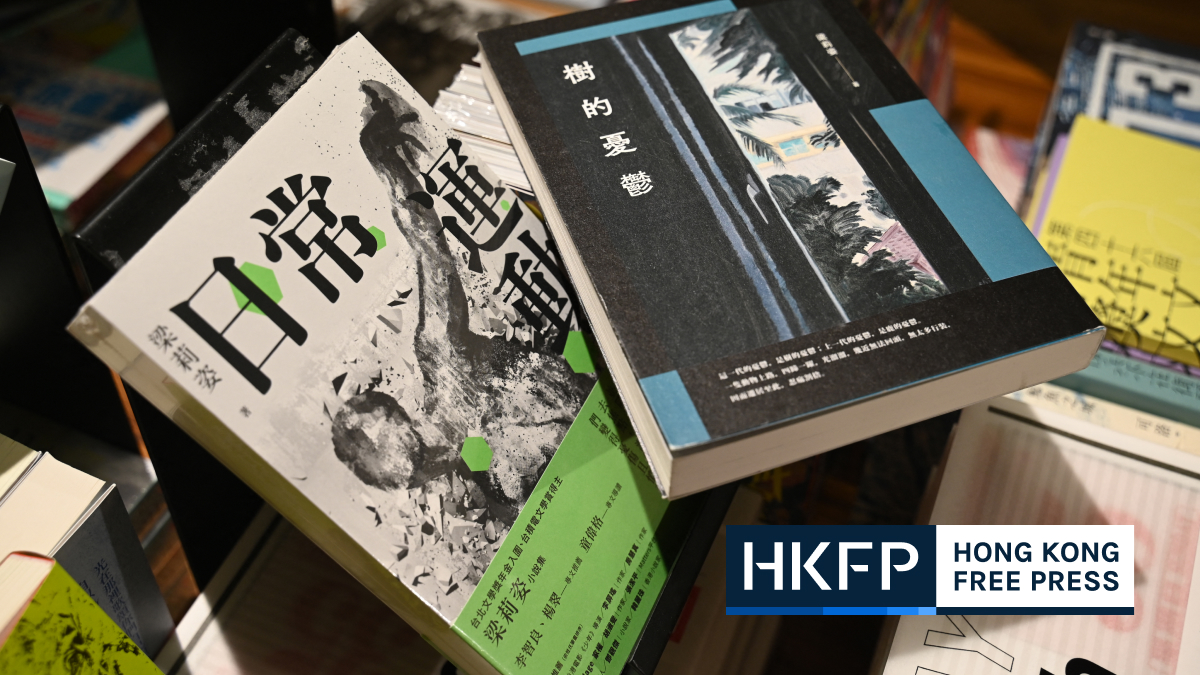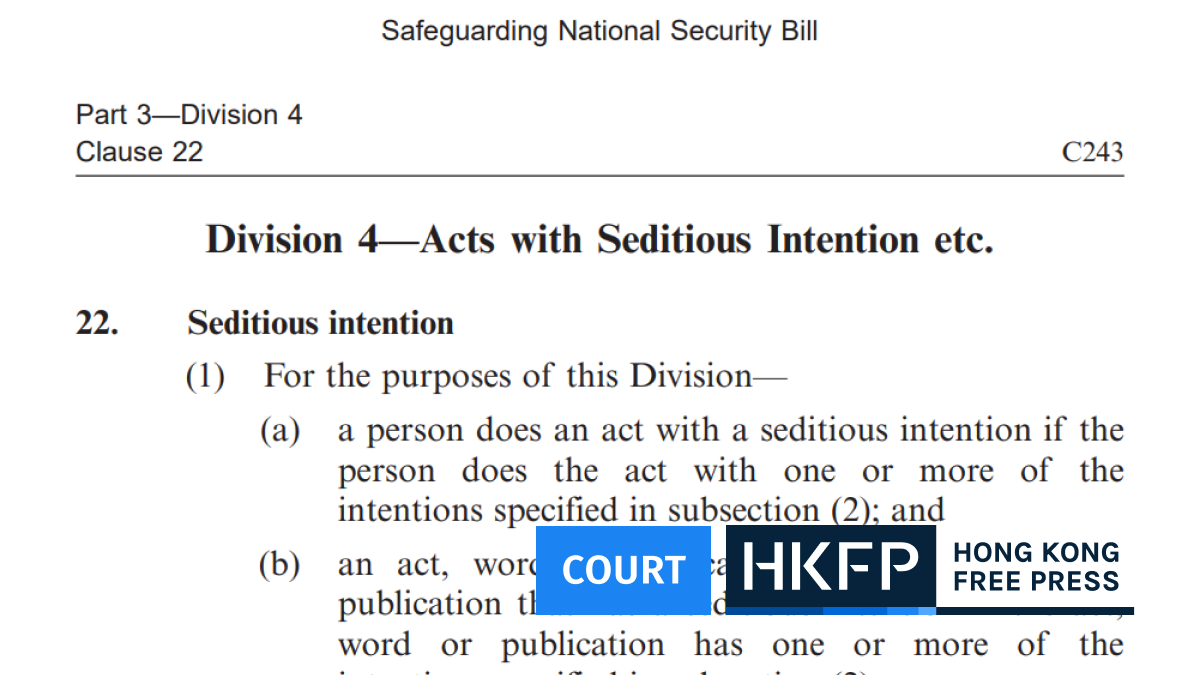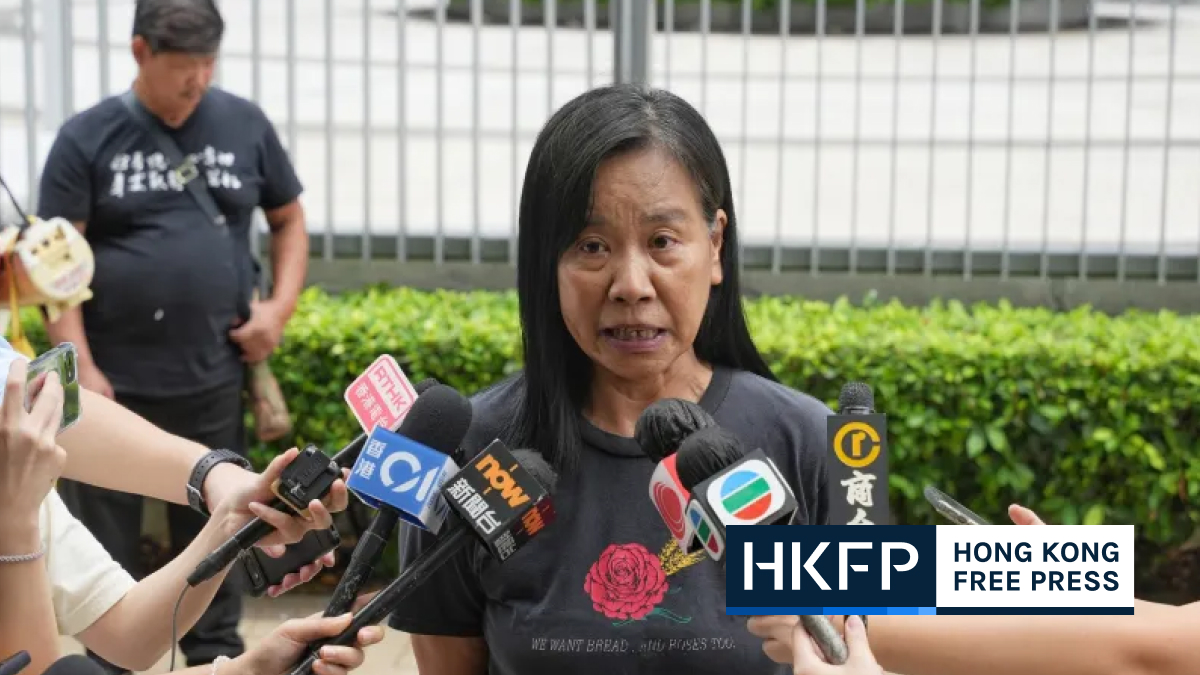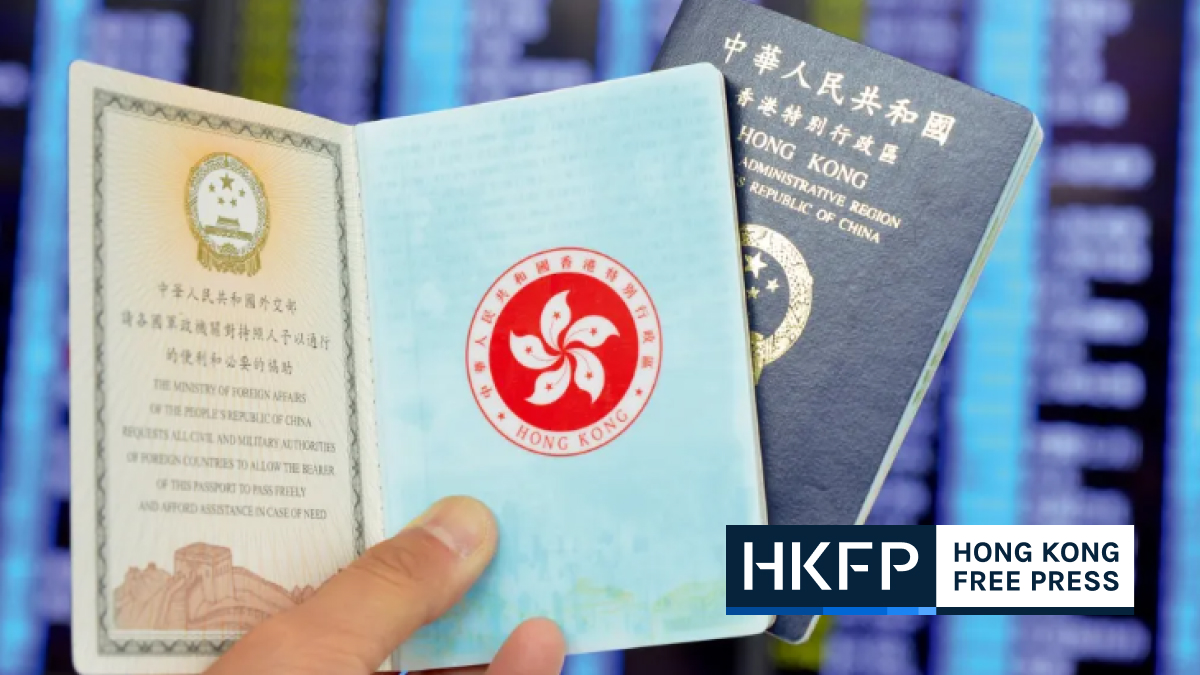Remarks made by US Secretary of State Antony Blinken on the possibility of imposing sanctions on Hong Kong officials would not impact the work of the Department of Justice, the city’s justice chief has said.
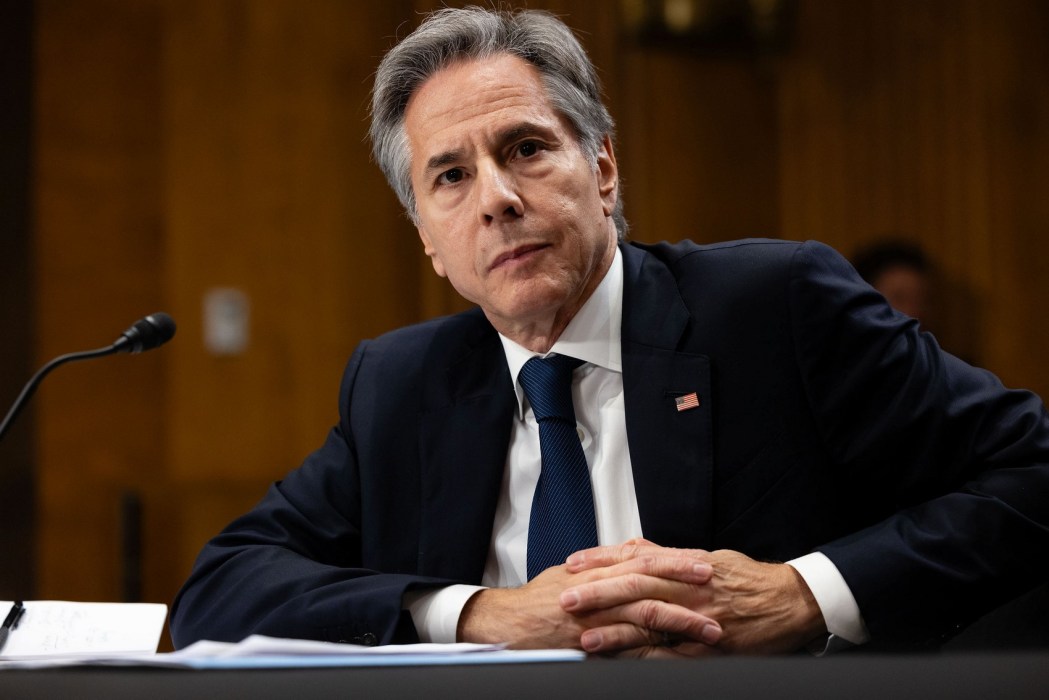
Secretary for Justice Paul Lam on Friday responded to comments by Blinken, who said he would be “happy” to review a list of suggested targets for sanctions over alleged human rights violations in Hong Kong.
Blinken’s remarks were made at a hearing held by the House Foreign Affairs Committee on Thursday, when he responded to questions raised by Republican lawmaker Young Kim.
Article 23
The congresswoman referred to the passage in Hong Kong of the Article 23 legislation in March, which the she described as being “much worse by all accounts” than the Beijing-imposed national security law enacted in 2020.
Kim questioned why no Hong Kong officials had been sanctioned since 2021. She also mentioned she had introduced the Hong Kong Sanctions Act along with two other US representatives. The bill called on the US to impose sanctions on at least 49 judges, prosecutors and officials who were said to have played an active role in persecuting dissidents in the city.

The list included justice chief Lam, Commissioner of Police Raymond Siu and High Court judges Esther Toh, Andrew Chan and Alex Lee, who were handpicked to oversee landmark national security cases.
“If my office transmits the list of these individuals to you, can you assure me that you will evaluate whether these individuals can be sanctioned under existing authorities?” Kim asked.
The 49 judges, prosecutors, and officials named in the Hong Kong Sanctions Act
- Paul Lam, Secretary for Justice.
- Sonny Au, Secretary General of the Committee for Safeguarding National Security of Hong Kong Special Administrative Region.
- Raymond Siu, Police Commissioner.
- Esther Toh, Judge of the Court of First Instance of the High Court.
- Amanda Woodcock, Deputy Judge of the Court of First Instance of the High Court.
- Victor So, Chief Magistrate.
- Peter Law, Principal Magistrate.
- Stanley Chan, District Judge.
- Adriana Noelle Tse Ching, District Judge.
- Kwok Wai-kin, District Judge.
- Amy Chan, Deputy District Judge.
- Cheng Lim-chi, Magistrate, Court No. 1.
- Johnny Chan, Judge of the Court of First Instance of the High Court.
- Patrick Chan, Non-Permanent Judge of the Court of Final Appeal.
- Wilson Chan, Judge of the Court of First Instance of the High Court.
- Andrew Chan, Judge of the Court of First Instance of the High Court.
- Andrew Cheung, Chief Justice of the Court of Final Appeal.
- Anderson Chow, Justice of Appeal of the Court of Appeal of the High Court.
- Susana Remedios, Judge of the Court of First Instance of the High Court.
- Joseph Fok, Permanent Judge of the Court of Final Appeal.
- Veronica Heung, Magistrate.
- Susan Kwan, Justice of Appeal of the Court of Appeal of the High Court.
- Johnson Lam, Permanent Judge of the Court of Final Appeal.
- Alex Lee, Judge of the Court of First Instance of the High Court.
- Anthea Pang, Justice of Appeal of the Court of Appeal of the High Court.
- Derek Pang Wai-cheong, Justice of Appeal of the Court of Appeal of the High Court.
- Jeremy Poon, Chief Judge of the High Court
- Roberto Alexandre Vieira Ribeiro, Permanent Judge of the Court of Final Appeal.
- Don So, Principal Magistrate.
- Frank Stock, Non-Permanent Judge of the Court of Final Appeal.
- Ada Yim, Principal Magistrate.
- Wally Yeung, former Vice-President of the Court of Appeal of the High Court; current Commissioner on Interception of Communications and Surveillance.
- Maggie Yang, Director of Public Prosecutions.
- Anthony Chau, Deputy Director of Public Prosecutions (III).
- Jonathan Man, Deputy Director of Public Prosecutions (I).
- Alice Chan, Senior Assistant Director of Public Prosecutions.
- Derek Lai, Senior Assistant Director of Public Prosecutions.
- Laura Ng, Acting Senior Assistant Director of Public Prosecutions (Special Duties).
- William Siu, Acting Senior Assistant Director of Public Prosecutions (Special Duties).
- Andy Lo, Assistant Director of Public Prosecutions (Special Duties).
- Ivan Cheung, Acting Assistant Director of Public Prosecutions (Special Duties).
- Crystal Chan, Senior Public Prosecutor.
- Cherry Chong, Senior Public Prosecutor.
- Wilson Lam, Senior Public Prosecutor.
- Edward Lau, Senior Public Prosecutor.
- Vincent Lee, Senior Public Prosecutor.
- Karen Ng, Senior Public Prosecutor.
- Jennifer Tsui, Senior Public Prosecutor.
- Memi Ng, private lawyer, fiat counsel appointed by the Hong Kong Government to serve as prosecutor.
In response, Blinken said the US government was “looking across the board” and “taking necessary actions,” including sanctions, against individuals who were “undermining Hong Kong’s basic autonomy.”
“We will continue to do that, but I am happy to look at that list that you have,” the US official said.
Hong Kong justice chief Lam said on Friday that the comments by Blinken were in breach of some fundamental principles of international law.
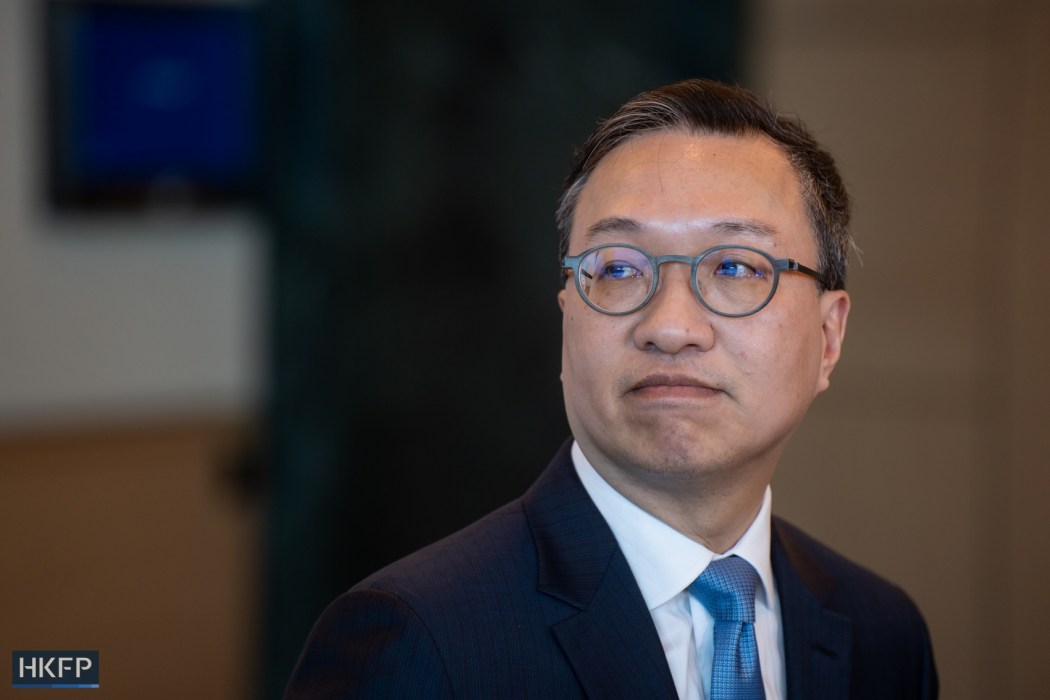
“Such acts or comments will absolutely not affect my work or that of the Department of Justice, nor will they have the slightest impact,” Lam told reporters in Cantonese.
Separate to the 2020 Beijing-enacted security law, the homegrown Safeguarding National Security Ordinance targets treason, insurrection, sabotage, external interference, sedition, theft of state secrets and espionage. It allows for pre-charge detention of to up to 16 days, and suspects’ access to lawyers may be restricted, with penalties involving up to life in prison. Article 23 was shelved in 2003 amid mass protests, remaining taboo for years. But, on March 23, 2024, it was enacted having been fast-tracked and unanimously approved at the city’s opposition-free legislature.
The law has been criticised by rights NGOs, Western states and the UN as vague, broad and “regressive.” Authorities, however, cited perceived foreign interference and a constitutional duty to “close loopholes” after the 2019 protests and unrest.
Support HKFP | Policies & Ethics | Error/typo? | Contact Us | Newsletter | Transparency & Annual Report | Apps
Help safeguard press freedom & keep HKFP free for all readers by supporting our team





















